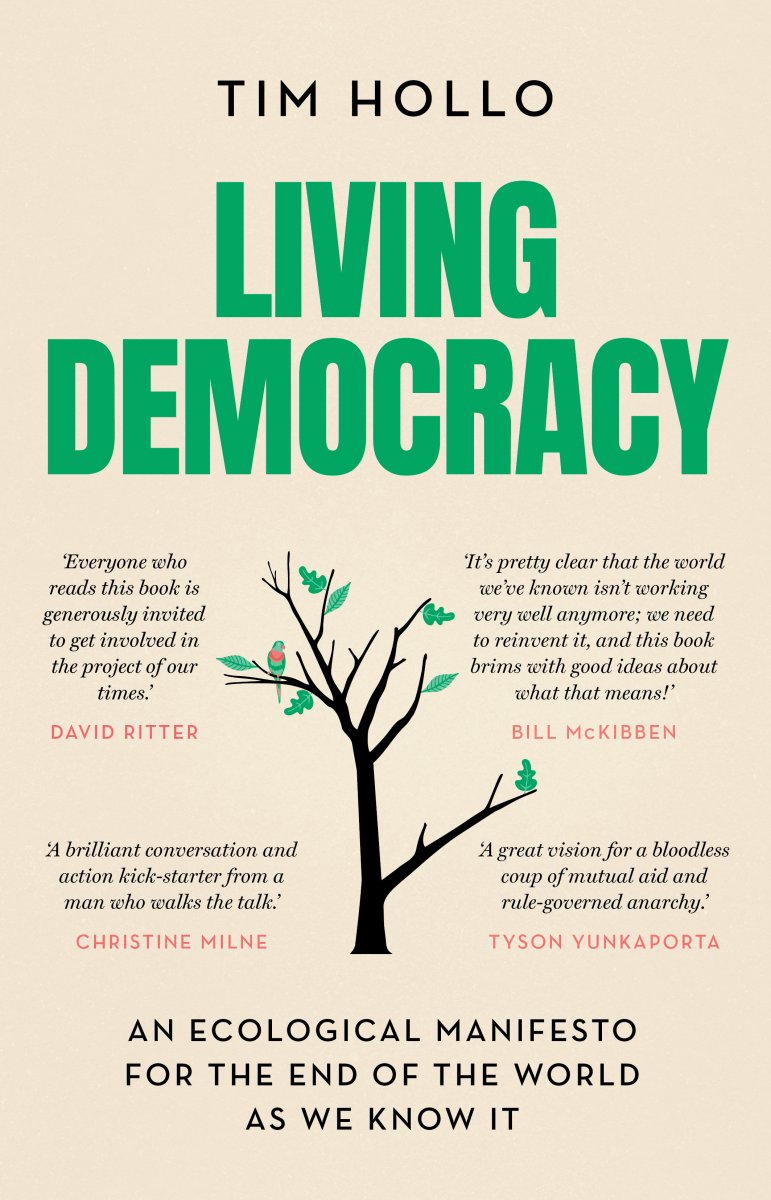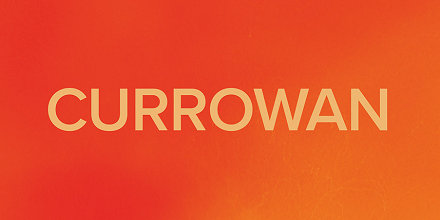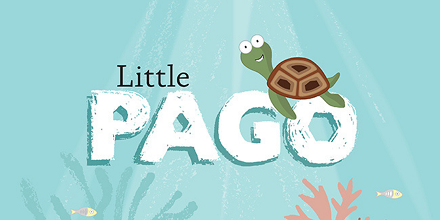
Tim Hollo is the Executive Director of the Green Institute, a Visiting Fellow at the ANU’s School of Regulation and Global Governance (RegNet), and a delegate to the federal council of the Media Entertainment & Arts Alliance for the Musicians Union. He was previously Communications Director for Australian Greens Leader Christine Milne, has been a campaigner and Board Member of Greenpeace Australia Pacific, and has written extensively for publications including The Guardian, ABC, The Griffith Review and Crikey.
To celebrate the release of his new novel Living Democracy: An Ecological Manifesto, Tim takes on our Ten Terrifying Questions! Read on …
1. To begin with why don’t you tell us a little bit about yourself – where were you born? Raised? Schooled?
My family, like so many Jewish families, travelled all across the globe repeatedly during the 20th century, fleeing persecution after persecution. I was born, kind of accidentally, in Reading, a commuter town near London, because my Dad happened to be working there at the time. But my parents had met at uni in Sydney, having both arrived in Australia as refugees in their teens. I was brought up in Canberra and Sydney, lucky enough to spend lots of time in nature – in the mountains, in the sea, in the bush – very aware of both our privilege and the fact that our privilege was very fragile. My grandparents had been privileged, as assimilated Jews in Europe, before that had been ripped away. I was taught to use my privilege to help others.
2. What did you want to be when you were twelve, eighteen and thirty? And why?
When I was 12, I wanted to be David Attenborough. True story. I couldn’t imagine anything better than actually getting to go to the places he got to go to, sitting there with magnificent wildlife, sharing his joy and awe with the rest of us.
When I was 18, I think I probably most wanted to be a musician. And I’ve had some amazing experiences as a musician – playing with incredible people, getting to go to wonderful places, being part of something so transcendent. But I think I knew then, too, that it would only be one part of my life. I was already also very exercised by injustice, and the destruction of our precious and beautiful home, so that was always going to be part of what I did.
At 30, my partner and I had a toddler and a newborn. What I wanted to be was peacefully asleep. Took a few years for that to be achieved!
3. What strongly held belief did you have at eighteen that you don’t have now?
At 18, I reckon I believed I had the answers to everything. Or at least that I could find them. Ha!
4. What are three works of art – this could be a book, painting, piece of music, film, etc – that influenced your development as a writer?
I’d have to include Ursula Le Guin’s A Wizard of Earthsea, which I first read when I was maybe 12 and have read and re-read many times since then, alongside her other works for young adults and adults, novels and short stories and essay and poems. Le Guin’s extraordinary simple and evocate language draws you in and leaves you with deep, lingering, challenging lessons about how we should live our lives, individually and collectively.
Attenborough’s Life On Earth has to be there, too. From him, as a small child, I absorbed absolute wonder and adoration for life on this planet. I often try to channel his wonder in my work.
Then I’ll go for Joni Mitchell’s incredible album Hejira, for the merging of simple beauty, story-telling, melding of artistic styles, and the love for the world – human and nature and modernity – that suffuses it.
5. Considering the many artistic forms out there, what appeals to you about writing non-fiction?
It’s actually the easiest way to express pretty specific ideas, I reckon. I’ve tried writing songs to express ideas, and you have to step back and be pretty generic to make the art work. Same with visual art. Same with theatre, even. You have to embed the ideas in layers of something else. Which is what makes them so powerful, of course, when they work! But with non-fiction, you just need to express your ideas clearly!

6. Please tell us about your latest novel!
Living Democracy is a manifesto for the end of the world as we know it.
It feels like pretty much everyone understands now that the world is on a knife’s edge. Everything is changing so fast. Nothing will ever be the same. Whether it’s the climate crisis or teetering democracies, spiralling economic inequality or centuries-old racial injustice, we’re on the precipice. But at the same time, all around the world, so many people and communities are doing incredible things, reinventing how we live together, actually building the world we need from the ground up.
Through stories and ideas, the book sets out a framework for how we can understand what’s going on, an array of examples of what we can do, and a way to piece together each aspect of change into true transformation.
It’s definitely the end of the world as we know it. It doesn’t have to be the end of the world.

7. What do you hope people take away with them after reading your work?
I hope people reading my book come away with ideas and inspiration. I really don’t want anyone to put the book down and get on with their lives as before. I hope they decide to do something – or something more, or something slightly different – to be part of this project of Living Democracy.
8. Who do you most admire in the writing world and why?
Ursula Le Guin. I mean, obviously. Just read her.
9. Many artists set themselves very ambitious goals. What are yours?
To help people work out how to make their contribution, whatever it is, to living ecologically, interdependent with all other living beings. To help them see what they’re doing as part of this most crucial transformation.
10. Do you have any advice for aspiring writers?
Read what you’re writing out loud. If it isn’t easy to read aloud, it isn’t easy to read in your head.
Thank you for playing!
— Living Democracy by Tim Hollo (NewSouth Publishing) is out now!

Living Democracy
An ecological manifesto for the end of the world as we know it
In Living Democracy, Greens activist Tim Hollo offers bold ideas and a positive vision. It’s the end of the world as we know it, but it doesn’t have to be the end of the world. In fact, around the globe, people and communities are beginning an exciting new journey.





 Read an extract from Currowan by Bronwyn Adcock
Read an extract from Currowan by Bronwyn Adcock  Author and illustrator Lauren Briggs shares how Little Pago came to life!
Author and illustrator Lauren Briggs shares how Little Pago came to life!  Ingrid Laguna: ‘I truly believe in the power of one person to make change.’
Ingrid Laguna: ‘I truly believe in the power of one person to make change.’
Comments
No comments